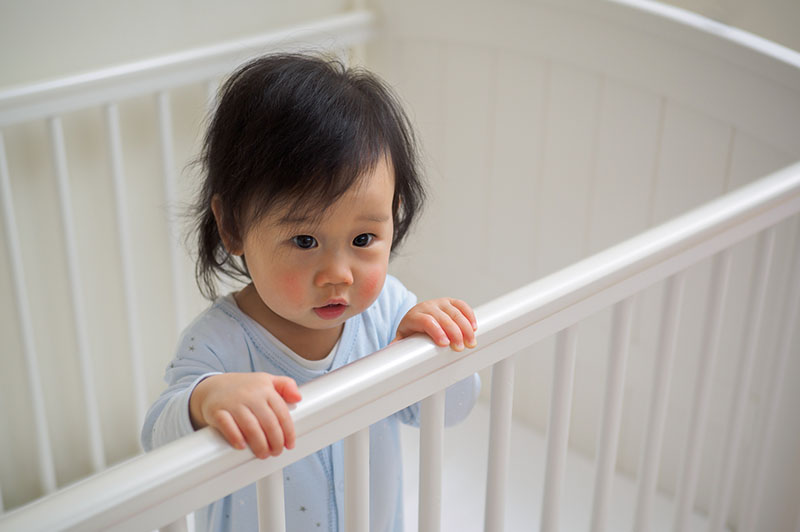Families For Life | Camping Out: Baby and Child Sleep Strategy

Camping out is a gradual strategy to help children over 6 months of age fall asleep by themselves. It can help with persistent child and baby sleep, settling and waking problems.
Camping out: What is it?
Camping out is a way of dealing with persistent settling and waking problems in babies and young children. It can also help with older children who are having problems getting to sleep, particularly if they feel
anxious or frightened.
The idea behind camping out is to help children go to sleep by themselves, rather than needing you to feed, pat, rock or cuddle them to sleep.
Working with a paediatrician on baby sleep problems can increase your chances of success with any child and their baby sleep strategy. You could think about getting this kind of support before you begin using the camping out technique.
Steps for camping out
Here’s how to do camping out:
Place a bed, mattress or chair next to your baby’s cot.
Lie or sit next to your baby and pat or stroke baby off to sleep.
When your baby is asleep, you can leave the room.
When your baby is used to falling asleep like this (usually within 3 nights), sit or lie by the bed until your baby falls asleep. Start reducing how much you pat or touch your baby until baby can fall asleep without patting or touching.
When your baby is used to falling asleep without patting (usually within another 3 nights), move your chair, mattress or bed away from the cot a short distance (30-40 cm). Stay in the chair, mattress or bed until your baby falls asleep.
Move your bed or chair gradually towards the doorway and out of your baby’s room. This could take a period of 1-3 weeks.
If your baby wakes overnight, return to the chair, mattress or bed (at the step you’re up to with settling). Stay there until your baby goes back to sleep.
Your relationship with your baby is unique. You might find it works better for both of you to modify these steps. For example, you might want to include more patting or longer periods between the suggested steps.
Tips for camping out
Here are some tips to help camping out go well:
When sitting or lying next to your baby, keep things quiet.
Gently explain to your baby that you’re sitting (or lying) quietly, and not playing or talking with her, because it’s sleep time. Reassure her that you’re staying with her until she’s asleep.
Try to avoid making eye contact while you’re settling baby. Tell her that you’re closing your eyes to go to sleep too. This lets your baby know that it’s time for sleep.
If your baby starts to cry (not whine), pat or stroke her until she settles. If she’s very upset pick her up and give her a cuddle. When your baby is calm, you can try settling her in her cot again.
Try to do the same things in the same way each time you settle baby. For example, keep the level of light in the room the same each night. It can also help to start using a bedtime routine.
If your baby isn’t settling any better after 2-3 weeks, talk to your paediatrician. They’ll be able to help you work out an approach suited to your child’s needs.
Will camping out work for me?
Camping out works for some babies and parents, but not all babies are the same.
Some babies just find it harder to settle. Also, there may be times when a happy, healthy baby finds it harder than usual to settle. This can be because of a period of rapid development that means she might need more reassurance from you.
Try not to blame yourself or your baby if camping out doesn’t work for you. There are other options you can try for handling baby sleep problems.
Your relationship with your baby, and your health and well-being, are important for your baby’s development. A good sleep strategy should improve all of these things, as well as helping your baby to settle.
© raisingchildren.net.au, translated and adapted with permission
Explore more